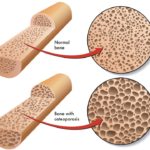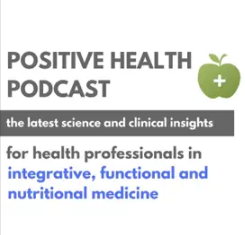
Microbiome Checklist for Mums to Be
October 10, 2025
Is caffeine giving you IBS symptoms?
November 14, 2025How Strong Are Your Bones? What Every Woman (and Man) Should Know About Osteoporosis

It’s World Osteoporosis Day this week — the perfect reminder for all of us, no matter what age we are, to check in on our bone health.
The truth is, most people don’t think about their bones until something breaks. But by then, prevention opportunities may have passed. So, how do you know if your bones are in good shape — or if it’s time to take action?
Who Should Be Checking Their Bone Health?
More than 50% of women over the age of 55 in Ireland (and 25% of men) will experience an osteoporosis-related fracture.
So, if you’re a woman, that’s a one-in-two chance — not odds anyone wants to play.
Your risk increases if you:
-
Have a family history of osteoporosis or fractures
-
Experienced early menopause
-
Live with inflammatory bowel, coeliac, kidney disease, or rheumatoid arthritis
-
Follow a vegan or dairy-free diet
-
Smoke, or regularly use antacids or certain antidepressants
How Do You Check Your Bone Density?
The gold standard is a DEXA scan — a low-dose X-ray that measures bone density.
Unfortunately, Ireland still doesn’t have a national screening programme. Most people only get a DEXA after age 65 or after a fracture, which is a bit like locking the stable door after the horse has bolted (and possibly fractured a leg).
Here’s what you can do instead:
-
Ask your GP for an early referral — especially if you have risk factors
-
Self-refer to a local DEXA clinic (recommended around the time of menopause or earlier if at risk)
-
Use tools like FRAX to assess your fracture risk
Important: DEXA tells you how dense your bones are, but not whether your bone health is stable, improving, or declining.
Because DEXAs use X-rays, they’re only repeated every 2–5 years — leaving a big information gap in between.
How to Track Bone Health Between DEXAs
That’s where bone turnover testing comes in.
These blood and urine tests measure the activity of cells that build and break down bone:
-
P1NP → shows new bone formation
-
NTX → shows bone breakdown
If your results are out of balance, it suggests your bones are currently losing density — whether you’re taking medication or trying a natural approach.
At Positive Nutrition, we recommend that clients with osteopenia or osteoporosis use bone turnover testing to check whether their bone-supporting plan is actually working.
Nutrients (and Habits) That Build Strong Bones
Your bones are living tissue, constantly renewing. They need a full team of nutrients to stay strong:
-
Vitamin D – your sunshine vitamin
-
Vitamin K2 – helps calcium go where it should (into your bones, not your arteries)
-
Calcium & phosphate
-
Omega-3 fatty acids
-
A healthy microbiome (yes, your gut affects your bones too!)
And don’t forget lifestyle: movement, exercise, posture, and even how you sit can all impact bone strength.
Try this bone-supportive Kale Caesar Salad — seasonal, delicious, and full of nutrients your bones will thank you for.
The Bottom Line
If you’re wondering whether your bones are strong, don’t wait for a fracture (or a diagnosis) to find out.
A combination of DEXA scans, bone turnover tests, and targeted nutrition gives you the full picture — and the power to protect your health proactively.
Would you like to speak to one of our Nutritional Therapists? Get in touch with us today or share this post with someone who could benefit from evidence-based nutritional support.
Warm wishes,
Heather, Ciara, Sorcha, Lynne, Elaine & the Positive Nutrition Team


